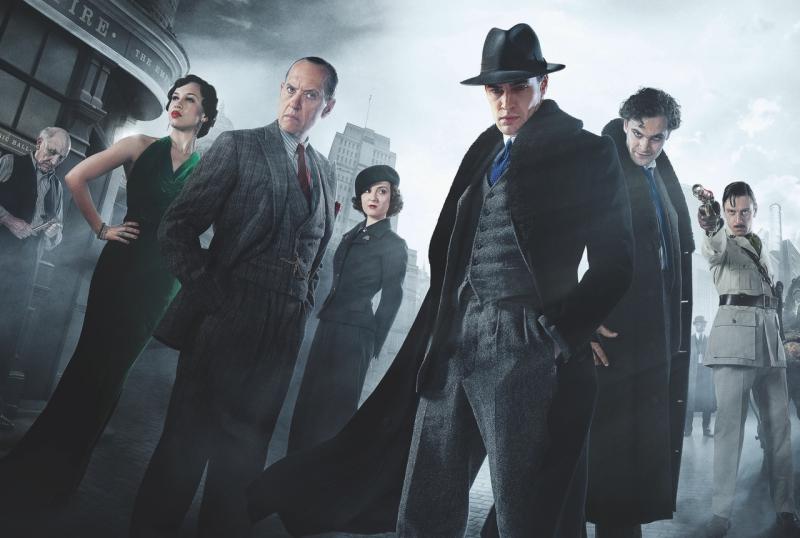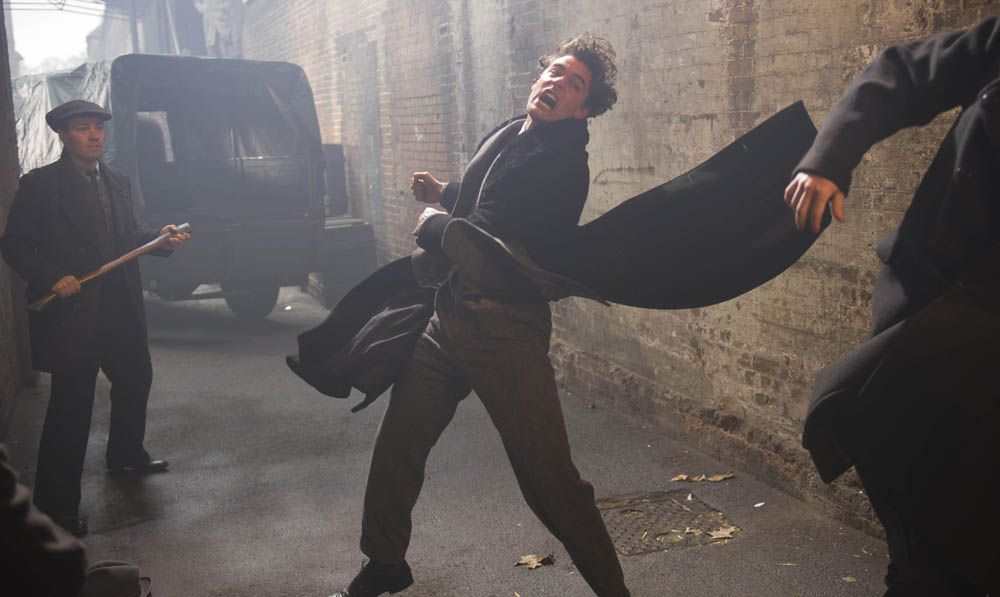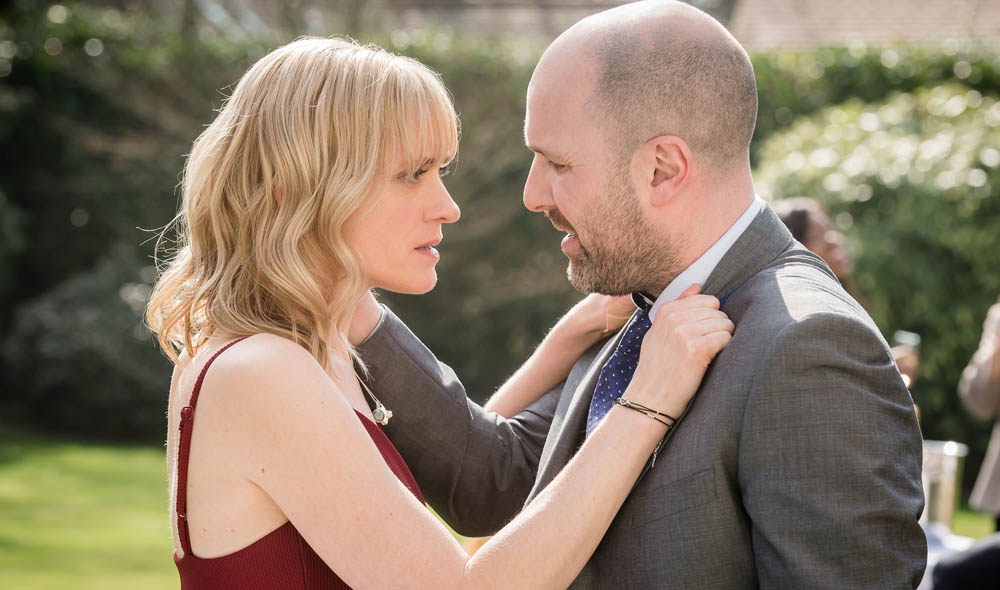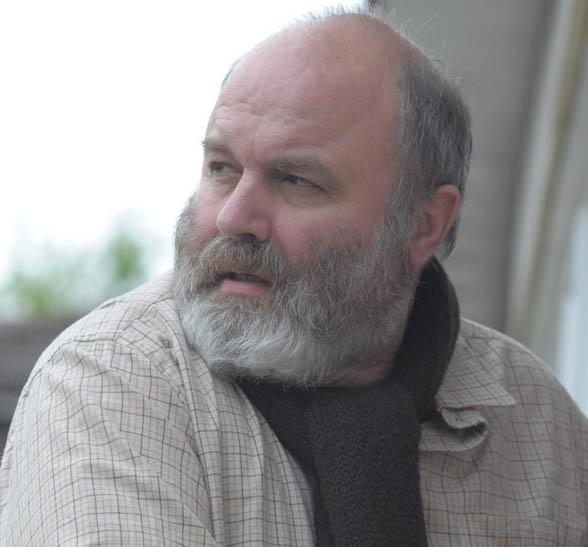Jekyll & Hyde, ITV / From Darkness, Series Finale, BBC One | reviews, news & interviews
Jekyll & Hyde, ITV / From Darkness, Series Finale, BBC One
Jekyll & Hyde, ITV / From Darkness, Series Finale, BBC One
Charlie Higson rewrites Robert Louis Stevenson for the age of superheroes

It's the age of the prequel, sequel and origin story, and the ingenious Charlie Higson has decided that now is the time to give Robert Louis Stevenson's divided-self myth a superhero-style makeover. Action-packed and a little bit shocking, this supercharged Jekyll & Hyde (****) has the makings of a major hit.
After a crisp precis of the kind of stuff the original Hyde got up (we got a long-distance view of him beating politician Sir Danvers Carew to death in a London street), we were whisked forwards 50 years to Ceylon, where nice doctor Robert Jekyll was inoculating the local children under the benevolent eye of his foster-father, Dr Najaran. However, he was obviously not as normal as he looked, since when an out-of-control truck smashed through the wall of the clinic, Jekyll lifted its 10-ton weight single-handedly to free a trapped child (Jekyll feels Hyde coming on, below).
 A letter about a family estate of which he knew nothing from London solicitor Max Utterson (the boomingly larger-than-life Christian McKay) prompted Jekyll's speedy departure to Blighty, and it was rapidly becoming clear that he was dragging a heap of hidden baggage along with him. We learned that he had long been suffering strange urges, only kept in check by Dr Najaran's special pills. In London, his arrival was anticipated by Bulstrode (a more than usually camp Richard E Grant), head of a secret government organisation called MIO ("Military Intelligence Other"). A bit like a 1930s version of Men in Black, this lot keep tabs on the "supernatural threats" and "monsters" with which the metropolis is apparently teeming.
A letter about a family estate of which he knew nothing from London solicitor Max Utterson (the boomingly larger-than-life Christian McKay) prompted Jekyll's speedy departure to Blighty, and it was rapidly becoming clear that he was dragging a heap of hidden baggage along with him. We learned that he had long been suffering strange urges, only kept in check by Dr Najaran's special pills. In London, his arrival was anticipated by Bulstrode (a more than usually camp Richard E Grant), head of a secret government organisation called MIO ("Military Intelligence Other"). A bit like a 1930s version of Men in Black, this lot keep tabs on the "supernatural threats" and "monsters" with which the metropolis is apparently teeming.
We saw one, a gruesome four-legged thing with a man's head called a "harbinger", which was predicting the arrival of a "powerful one" bringing death. Meanwhile, back in Ceylon, the sinister Tenebrae organisation was on the trail of Jekyll, in the person of the sadistic Captain Dance and his squad of supernatural black-clad ghouls.
It's great fun with a bit of a frisson, like a more mainstream mix (fit for its 6.30pm slot) of Penny Dreadful and Jonathan Rhys Meyers's Dracula, played with carefully-calibrated tongue in cheek by a spirited cast. Tom Bateman, who has the upstanding air of a John Buchan hero, hits all the right notes in both halves of his lead role. He projects diffident middle-class Englishness as Jekyll, then snaps into explosions of ultra-violence and lady-killing seductiveness when the Hyde gene strikes (he's the original Jekyll's grandson, incidentally). Nine more episodes lie in wait.
 BBC One's From Darkness (**) could have done with a bit of Jekyll's comic-book panache, but it ended without ever finding a convincing purpose in life. It just grew increasingly miserable and aimless, as the story meandered about trying to decide whodiddit.
BBC One's From Darkness (**) could have done with a bit of Jekyll's comic-book panache, but it ended without ever finding a convincing purpose in life. It just grew increasingly miserable and aimless, as the story meandered about trying to decide whodiddit.
This was a thankless task for Anne-Marie Duff in the lead role of Claire Church, supposedly a retired policewoman now somehow re-empowered to charge around questioning people and examining evidence because her ex-boyfriend DCI John Hind (Johnny Harris, pictured above with Duff) had decided it was a good idea. In episode three, she had one opportunity to throw off her straitjacket of misery and guilt, when she and Hind crashed a wedding party to interrogate a suspect. Church suddenly underwent a Jekyll and Hyde-style transformation under the influence of booze and prescription drugs, but it just looked like they'd cut in a scene from a different programme. The one reviewed above, perhaps.
 Having brought back the traumatised Church from her exile on a Scottish island, the show led a curious double life as it bounced between the Western Isles and Manchester, never making a meaningful bridge between the two. Sometimes Church was committed to her understandably baffled partner Norrie (Richard Rankin), then suddenly she was off snogging with Hind, an unprepossessing slob who should have been tied in a sack and left out for recycling.
Having brought back the traumatised Church from her exile on a Scottish island, the show led a curious double life as it bounced between the Western Isles and Manchester, never making a meaningful bridge between the two. Sometimes Church was committed to her understandably baffled partner Norrie (Richard Rankin), then suddenly she was off snogging with Hind, an unprepossessing slob who should have been tied in a sack and left out for recycling.
The series was supposed to offer a female-orientated perspective on the too-familiar theme of the serial murders of women, but still served up the de rigueur ration of bound and mutilated corpses, while having as a killer a middle-aged man (Jim Cartwright as Roy Marsh, pictured above) scarred mentally and physically by his mother's attempt to abort him felt gratuitously grotesque. For gender balance, there was a female perp too, who hastened From Darkness to its melodramatic and wholly implausible conclusion. File under misfire.
Add comment
The future of Arts Journalism
You can stop theartsdesk.com closing!
We urgently need financing to survive. Our fundraising drive has thus far raised £49,000 but we need to reach £100,000 or we will be forced to close. Please contribute here: https://gofund.me/c3f6033d
And if you can forward this information to anyone who might assist, we’d be grateful.

Subscribe to theartsdesk.com
Thank you for continuing to read our work on theartsdesk.com. For unlimited access to every article in its entirety, including our archive of more than 15,000 pieces, we're asking for £5 per month or £40 per year. We feel it's a very good deal, and hope you do too.
To take a subscription now simply click here.
And if you're looking for that extra gift for a friend or family member, why not treat them to a theartsdesk.com gift subscription?
more TV
 The Diplomat, Season 3, Netflix review - Ambassador Kate Wyler becomes America's Second Lady
Soapy transatlantic political drama keeps the Special Relationship alive
The Diplomat, Season 3, Netflix review - Ambassador Kate Wyler becomes America's Second Lady
Soapy transatlantic political drama keeps the Special Relationship alive
 The Perfect Neighbor, Netflix review - Florida found-footage documentary is a harrowing watch
Sundance winner chronicles a death that should have been prevented
The Perfect Neighbor, Netflix review - Florida found-footage documentary is a harrowing watch
Sundance winner chronicles a death that should have been prevented
 Murder Before Evensong, Acorn TV review - death comes to the picturesque village of Champton
The Rev Richard Coles's sleuthing cleric hits the screen
Murder Before Evensong, Acorn TV review - death comes to the picturesque village of Champton
The Rev Richard Coles's sleuthing cleric hits the screen
 Black Rabbit, Netflix review - grime and punishment in New York City
Jude Law and Jason Bateman tread the thin line between love and hate
Black Rabbit, Netflix review - grime and punishment in New York City
Jude Law and Jason Bateman tread the thin line between love and hate
 The Hack, ITV review - plodding anatomy of twin UK scandals
Jack Thorne's skill can't disguise the bagginess of his double-headed material
The Hack, ITV review - plodding anatomy of twin UK scandals
Jack Thorne's skill can't disguise the bagginess of his double-headed material
 Slow Horses, Series 5, Apple TV+ review - terror, trauma and impeccable comic timing
Jackson Lamb's band of MI5 misfits continues to fascinate and amuse
Slow Horses, Series 5, Apple TV+ review - terror, trauma and impeccable comic timing
Jackson Lamb's band of MI5 misfits continues to fascinate and amuse
 Coldwater, ITV1 review - horror and black comedy in the Highlands
Superb cast lights up David Ireland's cunning thriller
Coldwater, ITV1 review - horror and black comedy in the Highlands
Superb cast lights up David Ireland's cunning thriller
 Blu-ray: The Sweeney - Series One
Influential and entertaining 1970s police drama, handsomely restored
Blu-ray: The Sweeney - Series One
Influential and entertaining 1970s police drama, handsomely restored
 I Fought the Law, ITVX review - how an 800-year-old law was challenged and changed
Sheridan Smith's raw performance dominates ITV's new docudrama about injustice
I Fought the Law, ITVX review - how an 800-year-old law was challenged and changed
Sheridan Smith's raw performance dominates ITV's new docudrama about injustice
 The Paper, Sky Max review - a spinoff of the US Office worth waiting 20 years for
Perfectly judged recycling of the original's key elements, with a star turn at its heart
The Paper, Sky Max review - a spinoff of the US Office worth waiting 20 years for
Perfectly judged recycling of the original's key elements, with a star turn at its heart
 The Guest, BBC One review - be careful what you wish for
A terrific Eve Myles stars in addictive Welsh mystery
The Guest, BBC One review - be careful what you wish for
A terrific Eve Myles stars in addictive Welsh mystery
 theartsdesk Q&A: Suranne Jones on 'Hostage', power pants and politics
The star and producer talks about taking on the role of Prime Minister, wearing high heels and living in the public eye
theartsdesk Q&A: Suranne Jones on 'Hostage', power pants and politics
The star and producer talks about taking on the role of Prime Minister, wearing high heels and living in the public eye

Comments
Four miserable episodes
Boring and far fetched , the
I thought the ending was
Whole cartloads of bad
So bad that it will become a
Couldn't agree more -
I thought the ending was
What they said! --with
Stephenson made railway
Bloody trainspotters. Ok,
Bloody trainspotters. Ok, fixed that.
The bit that stood out as
If this were to be shown in a
I enjoyed the acting and the